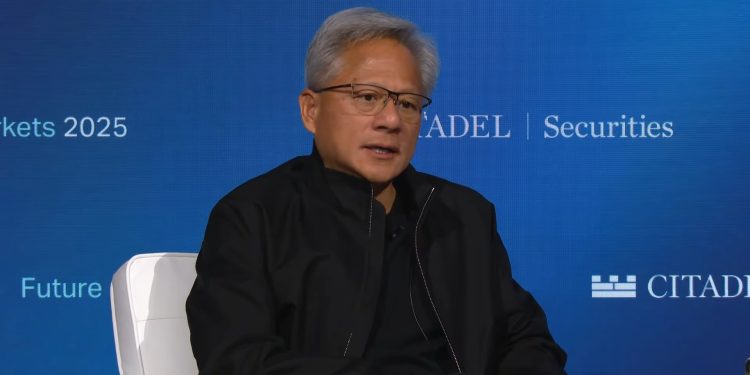Jensen Huang told attendees at the Citadel Securities Future of Global Markets 2025 conference that Nvidia is “100% out of China,” and he warned that aggressive policy choices could boomerang on the United States. The comment came during a wider discussion about artificial intelligence and trade, and it underlines how geopolitics is now a core part of the AI-hardware business.
Huang said the company went from about 95% market share in China to effectively zero, and that losing that business was not an outcome any policymaker would welcome. He argued that China still has roughly half of the world’s AI researchers and a strong academic and industry focus. He added that having those researchers build on American technology is valuable.
That frankness comes as the US-China trade situation keeps Nvidia’s H20 AI GPUs in a state of limbo. Export controls and licensing talks briefly opened a door earlier this year. Still, progress has stalled, and Chinese authorities reportedly paused production and purchases of specific Nvidia models on security grounds. Potential buyers in China have been left waiting while the diplomatic and regulatory back-and-forth continues.
The pause has real commercial consequences, not just headlines. Nvidia’s CFO recently described the situation as a geopolitical issue still needing work before shipments can resume, and there have been reports that China asked firms to halt some orders due to security concerns. Meanwhile, Chinese rivals such as Huawei continue to advance their own AI server platforms.
Nvidia’s relationship with the US administration is complex. There have been public moments of alignment between Huang and senior US figures, but policy moves like the new tariff announcement tied to an earlier rare earth dispute show trade tensions are not easing. For a sense of that political theatre and the electric-question grilling Nvidia has faced in Washington, see the company’s recent exchange with the US administration.
All of this means Nvidia is effectively watching diplomatic negotiations as closely as product roadmaps. Huang framed his remarks as a caution to policymakers, saying that policies that harm China could also harm America. The bottom line for the company is pragmatic: access to major markets and the ability to ship hardware still shape business outcomes as much as chip design and software stacks do.
Comments, corrections, or hot takes are welcome. Follow and argue with the story on X, Bluesky, and YouTube.

























